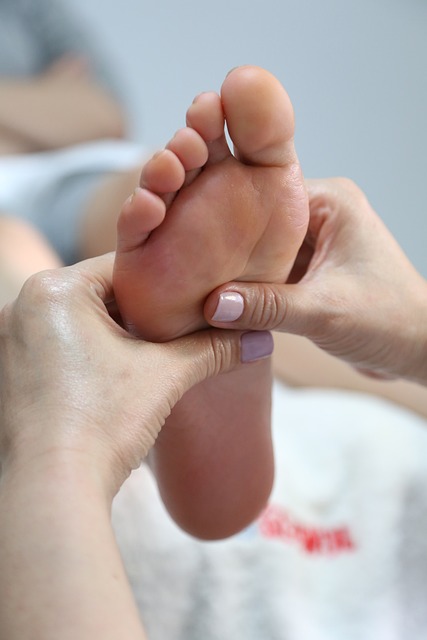Sleep is a crucial component of overall well-being, impacting physical and mental health, cognitive function, and stress management. Chronic sleep deprivation hinders productivity and mood regulation, while prioritizing quality sleep enhances resilience to daily stressors. Common sleep barriers include stress, anxiety, poor sleep hygiene, and electronic device usage before bed. Solutions involve maintaining consistent schedules, relaxing bedtime routines, and limiting screen time. Integrating sleep optimization techniques with mental health support programs can significantly improve recovery, energy levels, and psychological well-being, utilizing strategies like cognitive-behavioral therapy (CBT) and mindfulness practices paired with sleep hygiene education.
Sleep is a powerful ally in our quest for optimal recovery and energy levels. In today’s fast-paced world, understanding how quality sleep impacts our physical and mental well-being is more crucial than ever. This article delves into the science behind sleep’s role in recovery, exploring common barriers to restful nights and offering evidence-based techniques to optimize your sleep. We also discuss integrating sleep with mental health support programs for a holistic approach to enhancing overall wellness.
- Understanding Sleep's Role in Recovery and Energy Levels
- Identifying Common Sleep Barriers for Optimal Rest
- Implementing Effective Sleep Optimization Techniques
- Integrating Sleep with Mental Health Support Programs
Understanding Sleep's Role in Recovery and Energy Levels

Sleep plays a pivotal role in our recovery and energy levels, serving as a cornerstone for optimal physical and mental health. During sleep, our bodies initiate complex processes that repair tissues, strengthen the immune system, and consolidate memories. This restorative phase is essential for maintaining cognitive function and emotional well-being, which are key components of effective mental health support programs.
Understanding the significance of sleep allows us to recognize its potential as a powerful tool for enhancing recovery and boosting energy. Chronic sleep deprivation can lead to decreased productivity, impaired decision-making abilities, and heightened stress levels. Conversely, prioritizing quality sleep facilitates better mood regulation, improved focus, and enhanced resilience to daily stressors. By integrating sleep optimization techniques into routines, individuals can experience significant improvements in overall health and well-being, thereby supporting their participation in mental health support programs.
Identifying Common Sleep Barriers for Optimal Rest

Many people struggle with achieving optimal sleep, a crucial aspect of overall well-being and recovery. Identifying common sleep barriers is the first step towards enhancing rest quality. Stress and anxiety, often linked to mental health support programs, can significantly disrupt sleep patterns. The modern lifestyle, complete with electronic device usage before bed, can also interfere, as the blue light emitted by screens suppresses melatonin production, a hormone vital for sleep-wake cycles. Additionally, irregular sleep schedules, poor sleep hygiene (such as napping too late in the day or using beds for work), and underlying sleep disorders like insomnia or sleep apnea contribute to these barriers.
Understanding these obstacles is key to implementing effective solutions. Simple changes like establishing a consistent sleep schedule, creating a relaxing bedtime routine, and limiting screen time before bed can make a significant difference. For more severe cases, seeking professional help or exploring specialized mental health support programs designed to address sleep-related issues can be immensely beneficial in optimizing rest and enhancing energy levels during the day.
Implementing Effective Sleep Optimization Techniques

Implementing effective sleep optimization techniques is a powerful way to enhance recovery and boost energy levels, contributing significantly to overall mental health support programs. Start by establishing a consistent sleep schedule; going to bed and waking up at the same time daily aligns your circadian rhythm, promoting deeper and more restorative sleep. Create a relaxing bedtime routine to signal to your body that it’s time to wind down. This could include activities like reading, light stretching, or practicing mindfulness meditation—all of which help calm the mind and prepare the body for rest.
Additionally, optimizing your sleep environment makes a world of difference. Ensure your bedroom is cool, dark, and quiet, as these conditions facilitate better sleep quality. Consider investing in high-quality bedding and pillows that provide adequate support. By incorporating these simple yet effective strategies, you can dramatically improve your sleep architecture, leading to enhanced recovery, increased energy, and improved mental well-being.
Integrating Sleep with Mental Health Support Programs

Integrating sleep with mental health support programs is a powerful strategy for optimizing recovery and energy levels. Adequate rest is no longer considered a luxury but a necessity for maintaining both physical and mental well-being. Mental health support programs, such as cognitive-behavioral therapy (CBT) or mindfulness practices, can be effectively combined with sleep hygiene education to create a holistic approach to wellness. By teaching individuals techniques to improve their sleep quality, these programs enhance the benefits of therapy sessions, promoting better mood regulation and stress management during wake hours.
Moreover, integrating mental health support with sleep optimization recognizes the bidirectional relationship between rest and psychological health. Quality sleep serves as a crucial foundation for cognitive function, emotional resilience, and overall mental health. Conversely, mental health challenges often disrupt sleep patterns, creating a cycle that exacerbates symptoms. Therefore, combining targeted interventions for both areas can break this cycle, fostering a more balanced and energetic state for individuals seeking to improve their recovery and daily functioning.
By integrating effective sleep optimization techniques and addressing common barriers, individuals can significantly enhance their recovery and energy levels. Understanding the vital role of sleep in restoring both physical and mental health is key. Incorporating strategies such as consistent sleep schedules, optimized environments, and mindfulness practices can revolutionize one’s nightly rest. Moreover, combining these efforts with mental health support programs underscores the holistic approach to achieving optimal well-being, ensuring a vibrant and energetic lifestyle.
